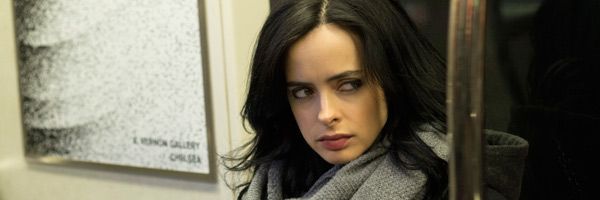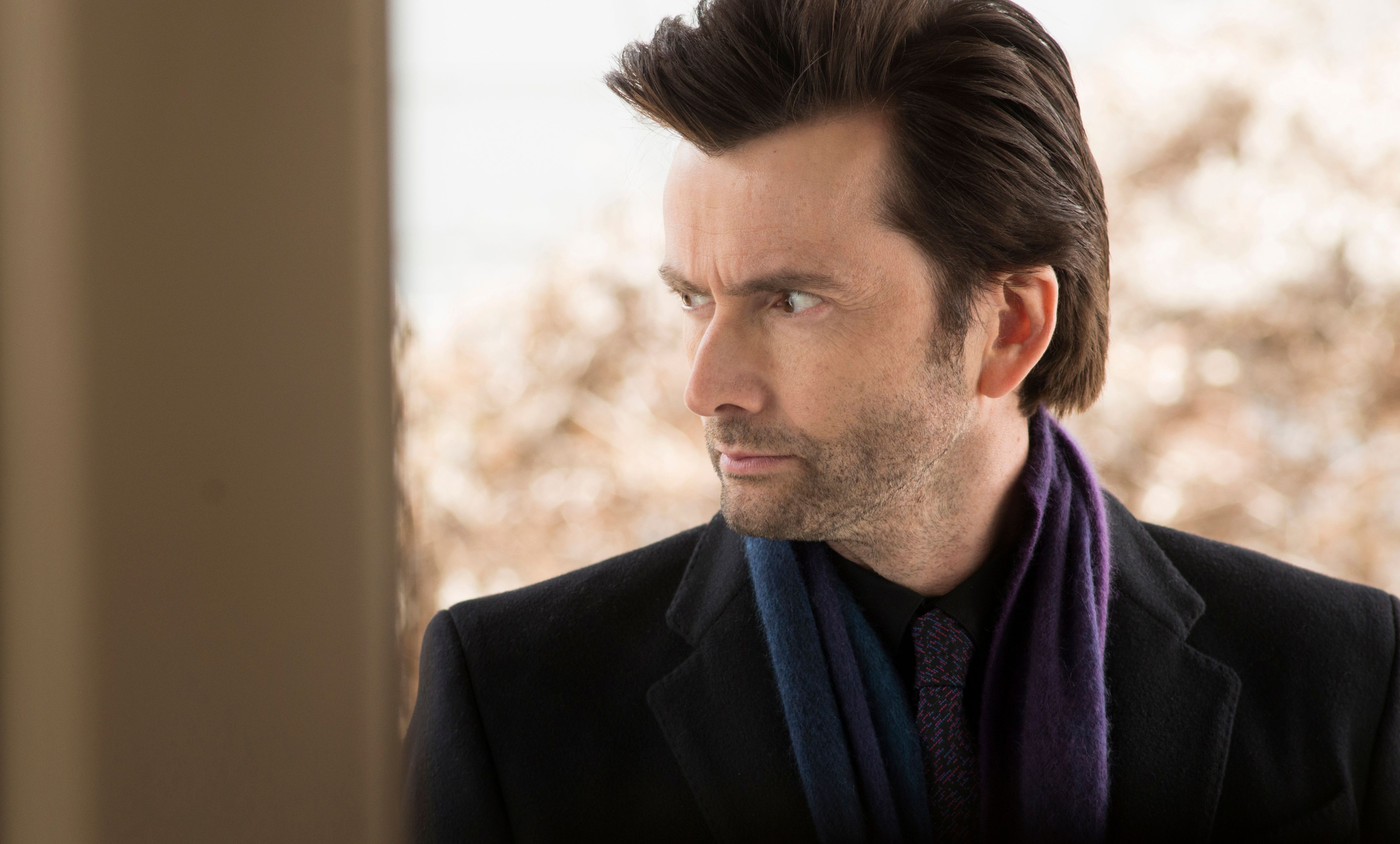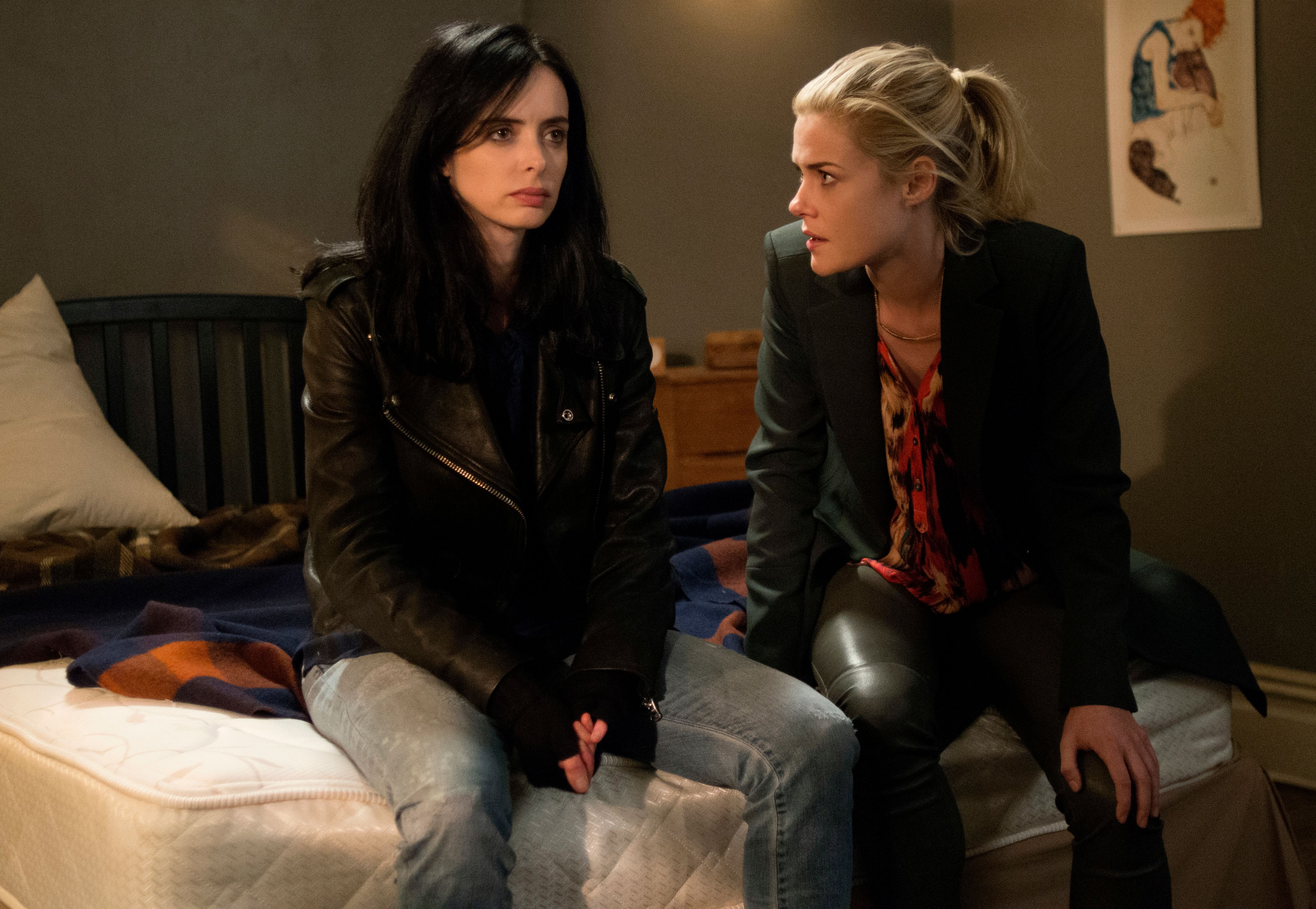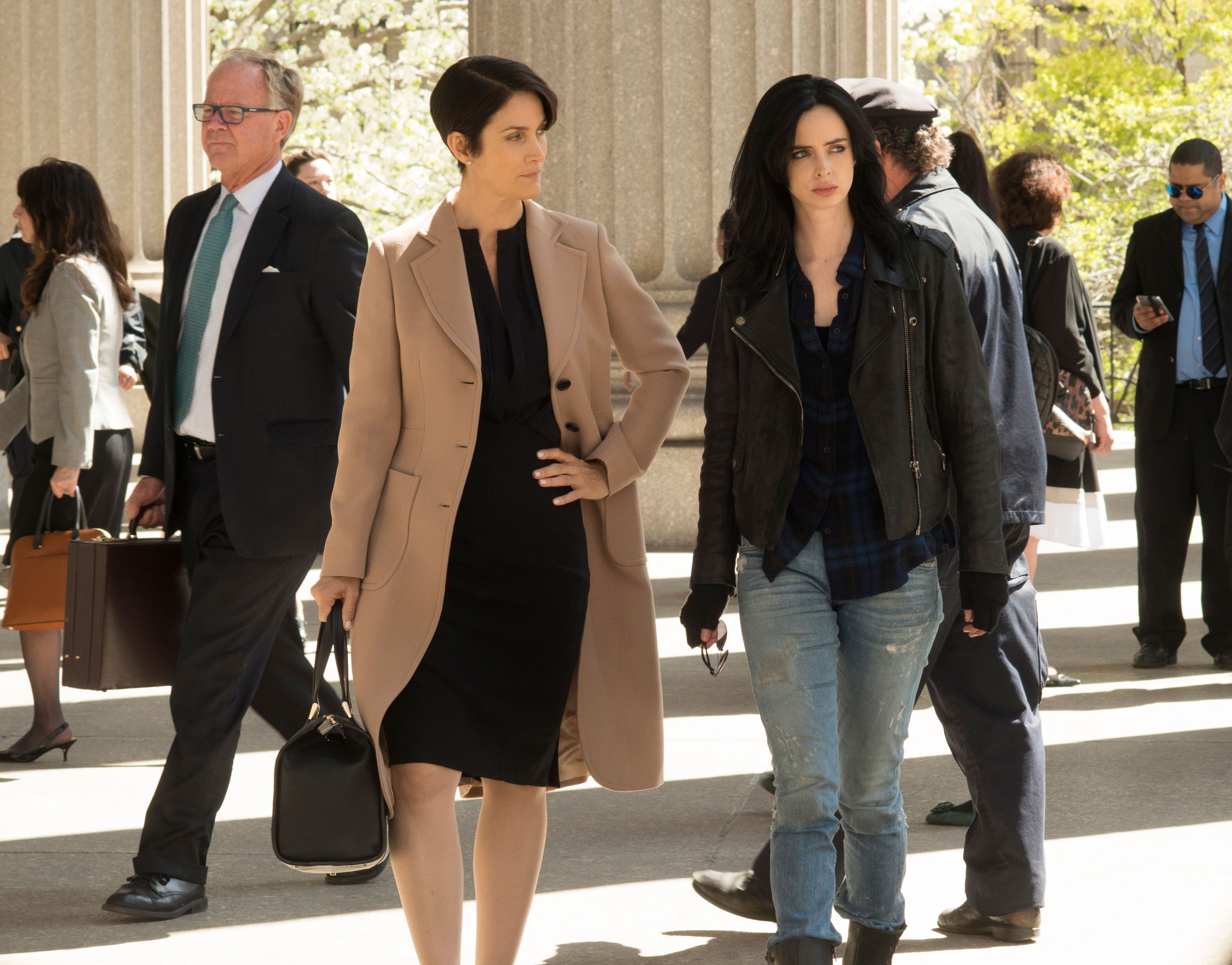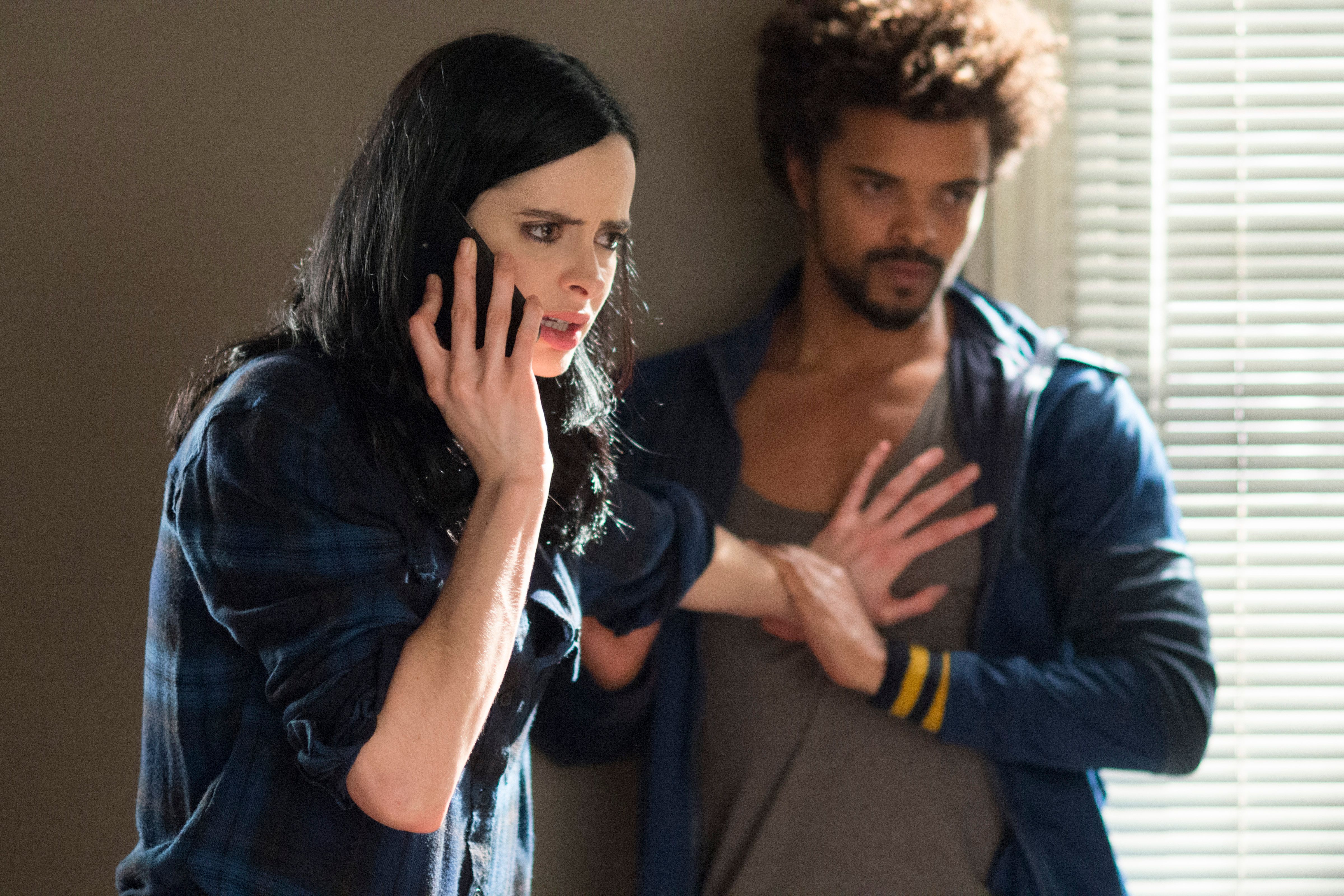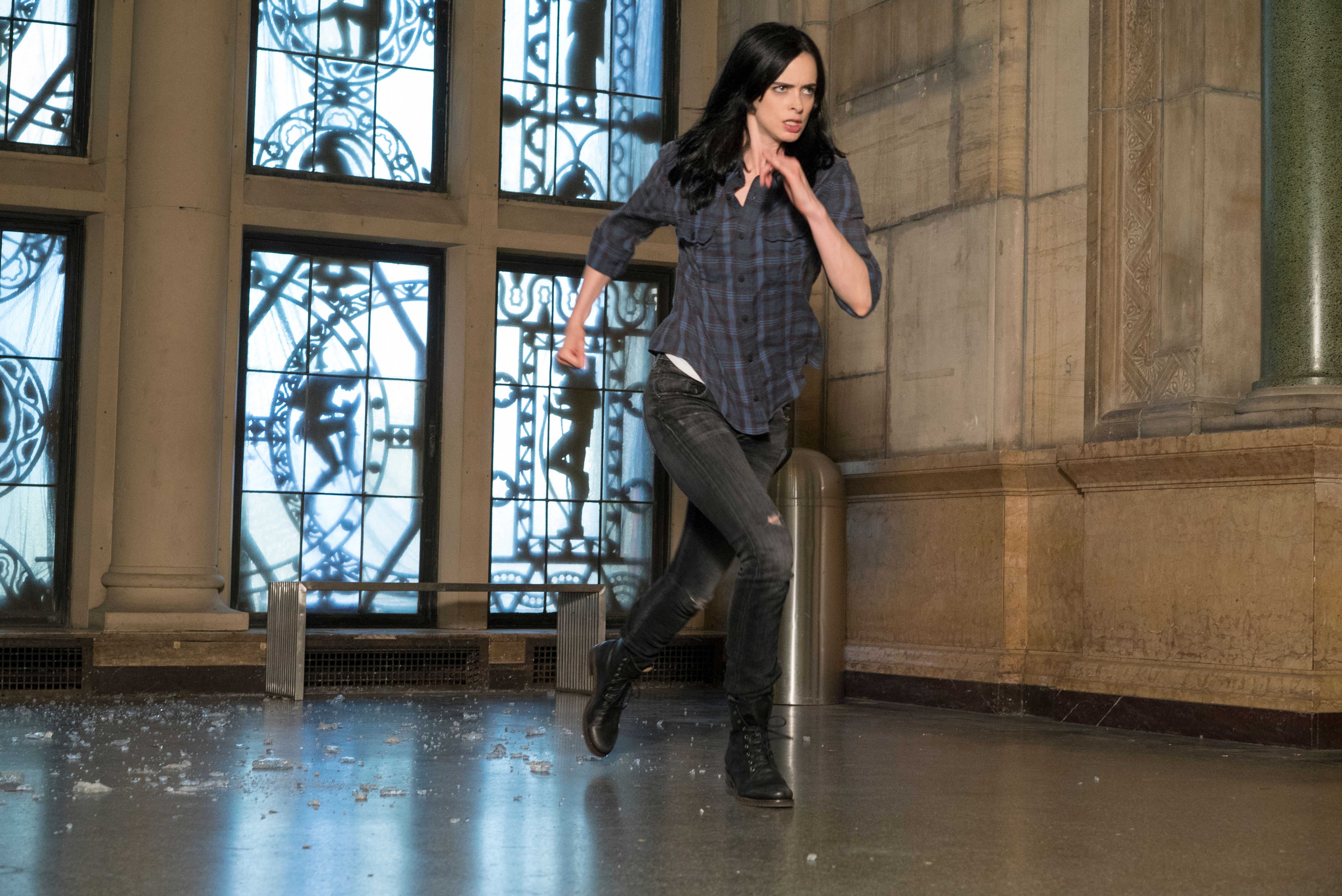The Marvel Cinematic Universe is not a bastion of mediocrity, nor is its latest addition, the Netflix series Jessica Jones, a perfect show. Yet while watching Jessica Jones, it’s like a light burst through and revealed how far the MCU has yet to go regarding the depth and the breadth of its storytelling. Jessica Jones has set a high bar going forward not just for Marvel’s television shows, but for its movies as well.
Here are four ways Jessica Jones stands out in the MCU and what future entries can learn from this excellent new show.
[Warning: This article contains spoilers for Season 1 of Jessica Jones]
The Villain
Following Avengers: Age of Ultron, I wrote about Marvel’s villain problem, which is something they’ve continued to wrestle with and will likely continue to do so if they insist on one-and-done bad guys. I understand that priorities are difficult, and given the choice between putting the hero front-and-center and highlighting the villain, its wiser to focus on the hero.
But that’s a choice that doesn’t necessarily have to be made. Additionally, the villain doesn’t have to be a “dark mirror” of the hero, which has been the case time and again with the MCU movies (watch the films closely together and the patterns are inescapable). The villain can stand on equal ground with the hero, while still receiving a backstory that makes them a rich, interesting character who’s interested in something other than Power™.
What makes Kilgrave such a compelling bad guy isn’t just his terrifying superpower and the way he wields it (he’s basically the world’s most powerful rapist), but the way he provides the foundation for the show’s themes, which is about surviving and facing sexual assault. Naturally, Kilgrave doesn’t see himself as a rapist, and he tries to couch his action in some misguided notion of love, but the show knows that it’s really power he’s after, and that’s what rape is about—a show of power and dominance by forcing others to submit.
Jessica Jones gets so damn clever with how they employ Kilgrave’s power to make sure it always ties back to the larger themes the show is going for. Before the series premiered, I was worried that the MCU TV shows were relying too heavily on mind-control as an evil superpower since it was previously used in Agents of S.H.I.E.L.D. and Agent Carter, but this is the first time where it actually means something instead of being a narrative shortcut (and also embraced as a superpower rather than a psychological weapon that feels like it was ripped out of Scientology literature).
So when Kilgrave has police officers laugh away a tense standoff as an elaborate practical joke, the visuals of the scene give way to a gut-wrenching subtext of every rape victim who was ever ignored or blamed by authority figures. It’s a perfect use of the villain’s powers to highlight the show’s themes, and it’s something that can only be done when there’s an eye towards a larger story rather than cool powers that can be employed for maximum spectacle.
The Tone
That’s not to say that everything moving forward should be like Jessica Jones. The show has its fair share of action scenes, but nothing particularly memorable, which is fine. Let Daredevil be the show with the elaborate fights and give the movies their action bombast. Jessica Jones confidently walks its noir corners of the MCU, and it feels like it’s delivering on a promise made in the past about the universe’s diversity.
The blessing and the curse of the movies is that they feel like they could all take place in the same universe, so that means they’re visually similar in terms of the cinematography, editing, etc. There’s a spectrum, but no film is allowed to veer too far from the visual template, and that way everything will be intact when crossovers happen. It’s a fair strategy for the game Marvel Studios head Kevin Feige is playing.
The flipslide is that it makes the world look somewhat limited, and that comments like Captain America: The Winter Soldier being a 70s conspiracy thriller or Ant-Man being a heist flick ring somewhat hollow. Yes, if you step far enough away and blur the lines enough, those movies meet the guidelines, but no one is going to mistake those movies for the genuine article. They’re superhero movies that just happen to remind you of other genres, which is fine.
Jessica Jones is noir first, and that’s diversity the MCU shouldn’t forget. They shouldn’t get rid of big, bold superhero movies (one of the things I love about Marvel Studios is how they embrace bright, colorful superheroes), but Jessica Jones feels like the first Marvel story that’s really bridging the gap between superheroes and other genres, and it’s because it puts its style first and then worries about the superpowers later.
The Maturity
What makes Jessica Jones far superior to the previous Marvel/Netflix series, Daredevil, is that it understands the difference between “dark” and “mature.” Daredevil is okay enough, but it thinks that it’s a more realistic show simply because characters swear and there’s more bloodshed than anything else bearing the “Marvel Studios” logo. But ultimately it’s just another elaborate origin story where the more fascinating Wilson Fisk frequently overshadows the heroic Matt Murdock. The big conflict, “Should Daredevil kill?” is one that’s been explored countless times by plenty of other heroes, and the attempts to incorporate Murdock’s Catholicism to that exploration feel superficial at best.
By comparison, Jessica Jones faces true evil. It’s not about whether or not a fictional character will or won’t kill his enemy. It’s about how people deal with sexual abuse. That’s as real as it gets, and even though the show puts it in a superhero framework with a villain who controls minds and a woman who lift cars, that harsh reality is always front and center -- and it should be. This is a story that no one else is telling, and that’s what we should be demanding from our storytellers more than a desire to see Character X team up with Character Y or square off against Character Z.
People have and will continue to think over the show’s thoughtful and mature depiction of sexual abuse long after they finish the season finale, and that’s a lasting legacy that far extends beyond a cool kill or a string of curse words. Those things have their place, but just because something is violent, that doesn’t mean it will connect with people.
Hopefully, when Marvel moves forward with other material, they’ll be able to spot the difference in the demands of their audience. Again, not everything they do going forward has to be exactly like Jessica Jones (and I would be upset if it were because it means they took the wrong lesson from the show’s success), but they should pay attention to how the series approaches real-life stakes from a superhero setting.
The Storytelling
Jessica Jones does not get bogged down in poor storytelling. It does not give the villain weak motives, but it also doesn’t let the villain overshadow the hero. It uses exposition as a tease rather than a chore to explain every little bit of plot. And it keeps the stuff that can be held to a second season off-screen. I couldn’t care less how a fictional character gets his or her powers unless those powers somehow relate to a larger subtext. In the case of Jessica Jones, it’s shown that IGH was somehow involved with her super strength, but that’s all we know at this point.
We’re all on board the superhero train now. We know how these movies work, and if you show that a character has superpowers, the story doesn’t necessarily have to be about those superpowers. I suppose Jessica Jones could have held off on Kilgrave for Season 2 and made the hunt for the people behind Jessica’s powers the point of Season 1, but how boring would that have been? I’m on board for Season 2 now that I like these characters and I like what showrunners did. They earned my trust by tackling difficult material, and I want to see where they’ll go next.
That’s not to say that the show’s plotting is perfect (Kilgrave gets kidnapped and escapes three times; some of the ancillary characters could be dropped; it’s a few episodes too long), but at least it has a strong focus and puts most of its characters exactly where they need to be to express a larger and more thoughtful story that will endure long after all the punches have faded away. It’s also a show that always feels primarily interested on its current story rather than looking ahead to what’s next, and when Claire Temple (Rosario Dawson) finally does show up, it feels organic to the story and a nice nod to how we’ll probably get to The Defenders.
Clearly, the Marvel movies can’t follow the same gameplan as a TV show, but they can take the note that it’s time to start putting the origin stories to rest to focus on a more active narratives. Additionally, it’s not like the MCU movies are necessarily falling short. They do have an eye towards reality, but Jessica Jones shows that they don’t need to be purely escapist entertainment (in case the studio somehow forgot that lesson from Winter Soldier). Engaging people with hard topics doesn’t necessarily mean you’re depressing them.
Looking Ahead
I don’t know what the future holds for Marvel’s TV shows, although I imagine there will be more of a gulf now that Feige reports directly to Disney while the TV side goes to Marvel Studios CEO Ike Perlmutter. I’ve also heard that the movie side and the TV side aren’t exactly chummy, and while that may hurt the potential for crossovers, I just want to see better stories coming out of the MCU, whether it’s on the big screen or at home. Jessica Jones shows that all of Marvel Studios can still fly higher.

